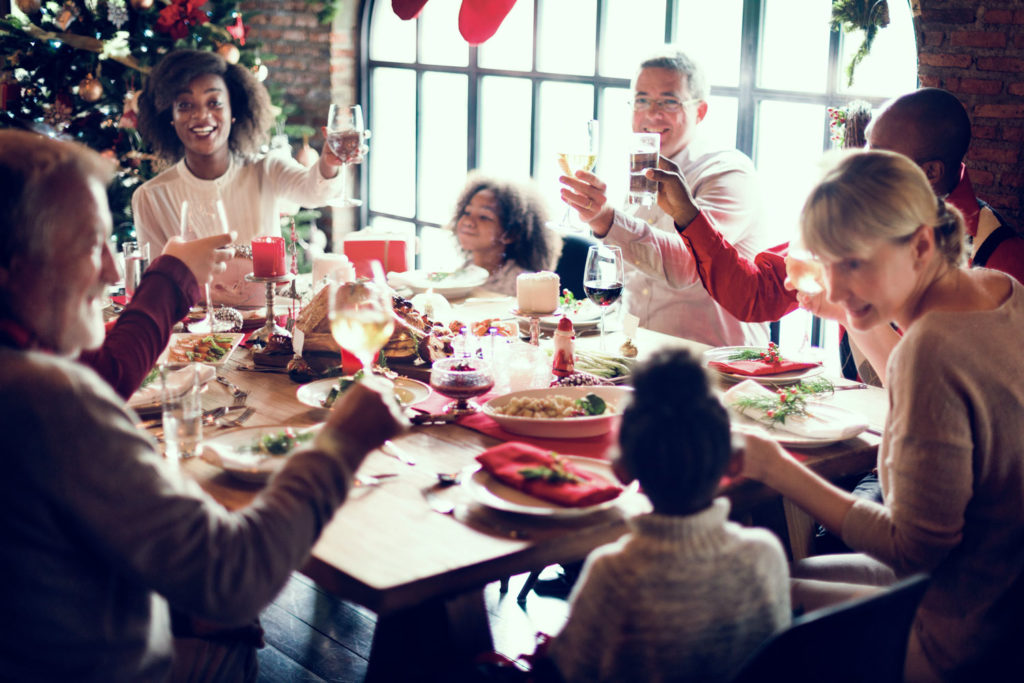Family & The Holidays

Each year therapists can sense the changing seasons not just by the weather, but also by a more consistent theme in conversations with their clients as the holidays are approaching. Conversations in therapy often shift to have more of a focus on the holiday events that await family and how to prepare for them. Conversations in sessions tend to include questions like: “How are you feeling about going home again?” “What is behind the dread and/or excitement you’re feeling?” “What is your comfort level with the idea of being around family over the holidays?” “Tell me more about how you usually handle the discomfort and comfort in spending time with your family.”? There may be comfort in the idea of being with family over the holidays but the holidays may also present challenges and stress in our relationships. Many families have expectations about how the holidays typically should be spent along with maybe expectations of how each person in the family is supposed to operate overall. Families can simultaneously be a source of comfort and a source of pressure, often bringing us back to negative memories and/or experiences. Part of preparing for the holiday season is reflecting to determine how you can aim to make your holidays your own desired experience.
Going Home Again
When discussing families and holidays in therapy sessions, one concept that often comes up is “going home again”. From a more theoretical perspective, the “going home again” phenomenon helps us understand what can happen when we, as an adult (emerging or mature), return back to our ‘original’ family in which we were raised. “Going home again” involves family members interacting and behaving as they had in the past, even though time has passed and many people have likely changed and grown. For example, if the growth and changes you’ve worked hard towards have happened in your adult ‘away-from-home’ life (i.e., growth outside of interactions with family members), you may have family members that still treat you the way they always have. In feeling some kind of way about being treated, as an adult, the way you were as a child and/or teenager, you may find yourself reacting the way you typically have in the past–perhaps as said child and/or teenager–, even if you evolved in similar areas of your life outside of your family. As parents, it may be easy to treat our adulting children a certain way based on the expectations established for each child during childhood. Though our baby(/ies) is grown and no longer technically in the childhood stage, it can be easy to unintentionally continue to enforce childhood expectations, even as these same children develop and evolve into their own person. And we as children often expect parents to behave as they always have, even though (believe it or not) parents can change too. It’s almost like families have a tendency to revert back to the dynamics in place during the period time of in which family members interacted more often, and/or were in the same geographic location. And families that are connected ongoing can have old set roles continue to play out.
Maybe this example will bring this concept to life a bit. There is a family of four where the oldest child was considered the “golden child” and the youngest child was almost dubbed the name the “troublemaker.” Imagine these children growing up and going off to live their adult lives to maybe no longer fit the mold of a “golden child” or a “troublemaker.” Maybe the “troublemaker” has done a lot of work in their adult life to change into someone who has learned from their mistakes and is proud of their growth. Maybe the “golden child” has grown out of wanting/having the focus on them for always doing things “right”. And maybe this “golden child” has changed in ways they believe their parents may disapprove of. These two adult children could return home for the holidays to be with their parents and be met with expectations that were placed on them from childhood. This can create tension and conflict as it’s also possible that these adult children react in the same ways they would have when they were younger. Maybe the “golden child” ends up not being themselves because they are used to getting their parents’ approval so they hide their true self. And maybe the “troublemaker” gets fed up with always being told they aren’t doing it right so they decide to rebel as they would have at age 16, even though they’d never react this way in their life outside of this dynamic involving their parents and sibling(s). A family disagreement at the dinner table can escalate quickly and cause a lot of discomfort from the push and pull between past versions of self, relationships, and the current version. The discomfort from this family dynamic can lead to lasting emotional impact even away from the moments together during the holidays.
Common Challenges
In addition to potentially challenging old family dynamics, here are examples of common challenges many individuals and relationships encounter:
- Feeling triggered by family members, dynamics, and/or being back in environments that have not felt safe or secure. Past hurt in the family may not be repaired and simply being in the same space can trigger old wounds.
- Conflict over differing belief systems be it political and/or religious differences. It is common for adult children to change beliefs as they have their own life experiences. Families may have expectations that the family’s initial belief system will be upheld by maturing children, and families can struggle to adapt to differing points of view.
- Expectations on individuals and/or couples in how, where, and when they celebrate the holidays. There may be a lack of consideration for what is best for the individual and/or couple(s), often due to situations such as adhering to expectations of upholding existing traditions, lack of adaptation to changing needs of family members, and/or a dynamic of catering to the needs of specific members of the family.
- Couples navigating how to balance seeing both sides of the family and dealing with disappointment and/or guilt from family members.
- Couples navigating dealing with in-laws and/or establishing themselves as a committed couple rather than two individuals within both families (make plans with families as a couple, rather than just one person attending solo).
Navigating Family & The Holidays
With this holiday season that awaits, begin to be curious about why the holidays feel the way they do to you, and how you would ideally want the holidays to feel going forward. There is a process to navigating family and the holidays and this self-reflection is the first part of the process. Try to understand the existing dynamics of your family. Is your family still functioning in the way it always has with the same expectations and reactions from before? Are there challenges based on differences in how certain individuals, specific couples and/or families are choosing to live and celebrate holidays? Family dynamics from the past can change when one person within the family changes. It is important to consider your hopes for the holidays first in order to adjust what you can control when approaching the holiday, such as how you aim to respond in certain situations, what boundaries you set and how you enforce them, and what energy and intentions you want to bring to the season and your interactions. While we cannot control nor are we responsible for the actions and reactions of others, reflecting on how we’d like the holidays to ideally go can help us gain clarity around what we can practice bringing to the table this holiday season.
For more perspective and considerations in approaching families around the holidays, join three clinicians who specialize in working with relationships and family systems to further explore how to navigate family and the holidays. Listen to our Zession “Navigating Family & The Holidays.” We support you in discovering what happiness looks like for you this holiday season.
Check out the Zession on this topic.






Responses